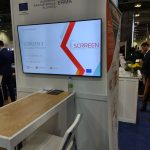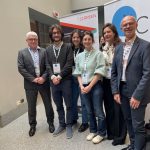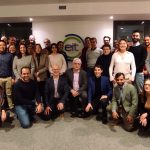Did you know there are already 4 million EVs on the road and the International Energy Agency expects the number of EVs to increase to 70 million in 2025? Will this electrification of mobility contribute to the goal of Europe to become climate neutral by 2050, in line with the targets of the Paris climate agreement of December 2015 to keep global warming well below 2°C? Do EVs really emit less greenhouse gases and air pollutants over their entire life cycle than petrol and diesel cars? Which technologies will make up the future EVs? Which e-motor will dominate? Will the rare-earth permanent magnet based e-motor prevail or will the induction motor win the battle? Which new permanent magnet phases will be developed? Will they still contain rare earths? And what about the energy supply for these e-motors? Although most of the present EVs are Li-ion battery-based, the first hydrogen fuel cell EVs are appearing on the roads, as the latter “have a driving range and refueling time similar to those of conventional vehicles” (The Economist, 1/12/2018). Will the supply of rare-earth elements, lithium and cobalt be sufficient to support the huge growth in EVs? Will recycling be able to contribute to the supply of these critical metals? Do we need to open new mines for rare earths in Europe? These are just some of the questions that will be tackled in the DEMETER Concluding Symposium.
The DEMETER Symposium (February 5-7, 2019, Leuven – Belgium) features a high-quality, “beyond-science-only” programme on rare-earth permanent-magnet motors and the e-mobility revolution. The three-day Symposium provides the floor to invited international experts from industry, academia and the European Commission, as well as the early-stage researchers from the ETN DEMETER project who will present their final results (watch the DEMETER video here). The Symposium includes two exciting panel discussions, which will stimulate a wider societal debate about the transition to a low-carbon mobility system, the requirement of critical metals (incl. rare earths), the Social License to Operate to mine and/or recycle critical metals, as well as the geopolitical aspects of rare earth sourcing. The Symposium is a co-organisation of DEMETER, SIM² KU Leuven and GloREIA.
More information about this eventComments are closed.





 The SCRREEN3 project has received funding from the European Union's Horizon Europe Research and Innovation Programme under Grant Agreement N° 101138060
The SCRREEN3 project has received funding from the European Union's Horizon Europe Research and Innovation Programme under Grant Agreement N° 101138060